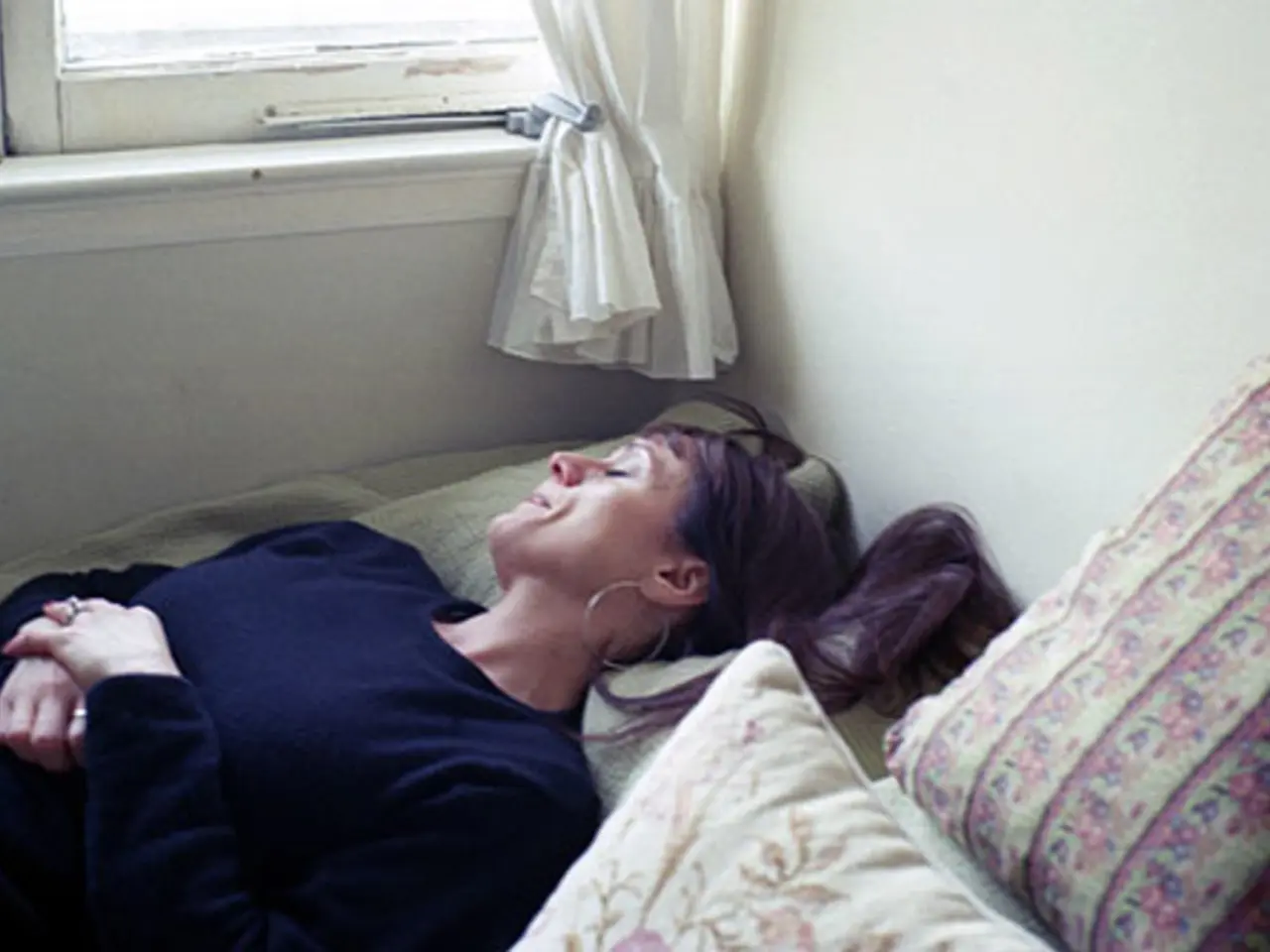Women's Excessive Fatigue: Exploring Why Females Experience More Tiredness Than Males
In a study conducted by the Centers for Disease Control (CDC) in 2010-2011, a significant gender divide was observed regarding feelings of tiredness and exhaustion. The research revealed that 15% of women reported experiencing these sensations, compared to 10% of men. This difference was particularly pronounced among individuals aged 18 to 44, with 16% of women and 9% of men reporting similar feelings.
The gender disparity in sleep patterns extends beyond feelings of fatigue. Women are more likely to experience sleep disorders such as chronic fatigue syndrome and insomnia. This could be due to a variety of factors, including biological differences, societal pressures, and lifestyle choices.
Research suggests that women might need to be especially vigilant about ensuring they get a solid night's rest. This is because women's circadian rhythm generally causes them to fall asleep and wake up earlier than men, which can cause issues when trying to go to bed at the same time as their male partners.
Societal factors in Germany, for instance, are causing more sleep problems in women. Higher stress levels and less sleep among parents, especially single mothers, due to childcare responsibilities contribute to this issue. Biological factors involve hormonal changes during menopause that lead to sleep disturbances, concentration issues, and mood swings. Women are also more frequently affected by conditions like chronic fatigue syndrome, which impacts sleep quality.
In opposite-sex couples who share a bed, men are more likely to disturb their partners, potentially due to women's circadian rhythm being about six minutes shorter. This disruption can further exacerbate sleep issues for women.
The consequences of sleep deprivation for women are far-reaching. Women who sleep poorly are statistically more likely to suffer from heart disease, type 2 diabetes, hypertension, and psychosocial distress compared to sleep-deprived men. Women's reported fatigue might also be the body's way of asking for a break from a hectic day.
Contrary to popular belief, women are not more likely to be slacking on their responsibilities at the office due to sleep deprivation. When men and women are sleep-deprived, women are more accustomed to functioning on the job while feeling tired. Men, on the other hand, show poorer performance at work when sleep-deprived compared to sleep-deprived women.
In conclusion, the gender divide in sleep patterns is a complex issue that intertwines biological and societal factors. More and more research suggests the importance of sleep for women's overall health and well-being, and it's crucial for women to prioritise good sleep hygiene to maintain their physical and mental health.
Read also:
- Nightly sweat episodes linked to GERD: Crucial insights explained
- Antitussives: List of Examples, Functions, Adverse Reactions, and Additional Details
- Asthma Diagnosis: Exploring FeNO Tests and Related Treatments
- Unfortunate Financial Disarray for a Family from California After an Expensive Emergency Room Visit with Their Burned Infant








